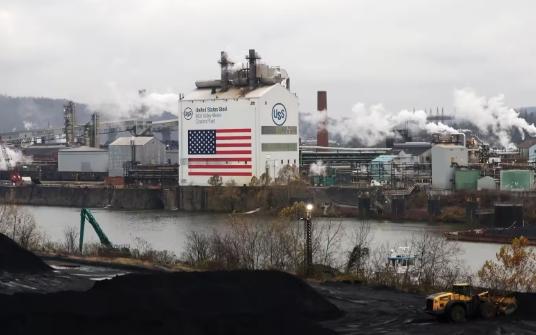
Japanese steel giant Nippon Steel 11 expressed dissatisfaction with the United States, “Let the political factors above the real national security interests is not appropriate,” In response to media reports that President Biden was preparing to block his bid for American steel.
In December, with Nippon Steel’s U. S. approval of the acquisition of U. S. Steel companies approaching the final moment of decision, the acquisition impasse seems to be increasingly difficult to resolve. Biden plans to formally reject Nippon Steel’s $14 billion takeover bid, Bloomberg reported Monday, citing sources with knowledge of the matter. CFIUS is scheduled to present its findings to Biden later this month after months of assessing the national security implications of the deal. But whatever the outcome, Biden is highly likely to reject the offer.
Bloomberg said both Nippon Steel and U. S. Steel would seek legal action against the U. S. Government to force a takeover if Biden does try to block it.
Nikkei Asia review also revealed that Nippon Steel executives met with union leaders during a visit to the United States late last month. At the time, Nippon Steel produced what it said was a legally binding document promising to invest no less than $2.7 billion to retrofit old furnaces in American steel. But unions say Nippon Steel’s promises benefit U.S. Steel executives and institutional investors, not steel workers. On Monday, Nippon Steel publicly acknowledged that the differences between the acquirer and American workers remained wide. Staff believe Nippon Steel is likely to close unionised factories and shift production to non-unionised ones. Nippon Steel has been refuting the claims and has promised to address the“Concern” of trade unions and government officials that“Ordinary employees often do not receive any recognition for their contribution to creating value for shareholders”.
It is noteworthy that Nippon Steel has been touting to the US that its acquisition of US steel companies will help the US strengthen its supply chain and promote US competitiveness against the background of Chinese steel companies occupying a major position in the global market, and stressed that“This deal will strengthen the U. S. economy and national security by confronting the ‘threat’ posed by China.”. But the rhetoric has not gone down well at the top, with Donald Trump, the incoming president, as well as Biden, consistently opposing the takeover. Earlier this month, Donald Trump repeated his pledge to help the steel renaissance with tax breaks and tariffs.
Japanese officials and executives are baffled by the US’s use of so-called national security concerns to block acquisitions because Japan has always believed the two countries are allies, the Financial Times reported yesterday. Mirea Thouless, director of the Brookings Institution Asian Policy Research Center, said the key to Nippon Steel’s setback was that it was an isolated case, or does it reflect the overall phenomenon of the US saying“No” to foreign takeovers.